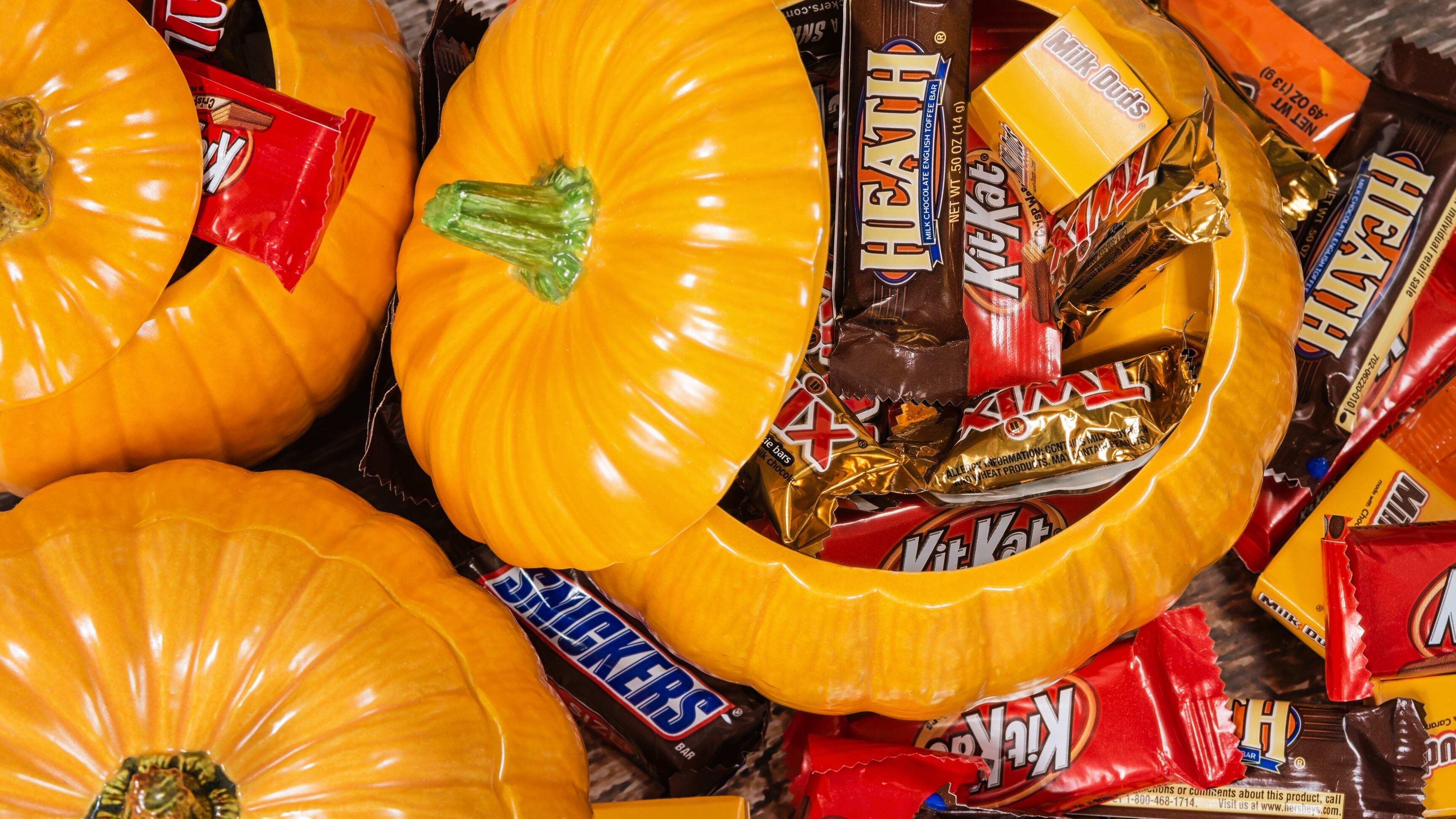The costumes and skeletons are put away, Mariah Carey has now taken control of the holiday season, and there are bags of candy strewn all over the house. Once the kids (and adults) come down from the sugar high, what can you do with all the leftover trick-or-treat candy?
If you don’t want to let your kids eat it all, and you have already had way too much to “help” them consume the sweets, you can donate what’s left or even use it in some culinary delights.
First for the donations.
There’s an organization called Soldiers’ Angeles Treats for Troops that will take what you don’t want and send it to military members, VA hospitals and military units worldwide. To find a site where you can donate your candy, click here. It is too late to become a collection site, but next year you can register and choose where the candy will go on the Treats for Troops website.
You can also make up candy bags that can be sent to the Treats for Troops organization which will then be sent to deployed military, VA hospitals or other military facilities. For more information on that program, click here.
If donations aren’t your thing, and you would rather get creative, then head to the kitchen and make some magic.
Delish has compiled a list of 40 recipes ranging from a S’mores Skillet Cookie to a Gummy Bear Cocktail to a Chocolate Pizza to use up the candy that’s lying around.
Pioneer Woman has another 20 ideas like toffee cookie bars and Christmas Cracker Candy.
Finally, if donations and new creations aren’t up your alley, you can always stash it for later. Virginia Tech looked into it and found that most commercial candies are safe for months after Halloween. But if the treats are homemade, they will have a shorter shelf life.
The shelf life depends on the type of candy:
- Dark chocolate - one to two years if wrapped in foil and stored in a cool, dark, dry place.
- Milk and white chocolate - 8 to 10 months.
- Hard candy - up to a year when stored at room temperature or a cool, dry location.
- Jellied candy - 6 to 8 months if opened, but away from light and heat, keeping it at 70 degrees or so; 12 months if not opened.
- Candy corn - 3 to 6 months if opened; 9 months if unopened.
- Gum - 6-9 months if sealed.
- Caramel - 6 to 9 months if stored covered and away from heat and light, keeping it at room temperature. Could last up to 12 months in some cases.
Homemade candy and sweets should be eaten shortly after creation. Those included caramel- or candy-coated apples, Rice Krispy Treats and fudge, according to Virginia Tech.
“For items that are fully cooked to their crunchy and sticky best, these usually last at room temperature for anywhere from four to seven days,” food science assistant professor Alexis Hamilton said. “Coated apples are a risk if partially eaten and not kept in the fridge. These can be safely enjoyed for up to four days after partially eating them and storing in a refrigerator. If you want to enjoy a candy apple on a stick, consider waiting to insert the stick until right before you intend to eat them or (if making in advance), store them in the refrigerator. Of course, these storage recommendations are only a factor if these aren’t gobbled up before they even make it to a container.”
© 2024 Cox Media Group






